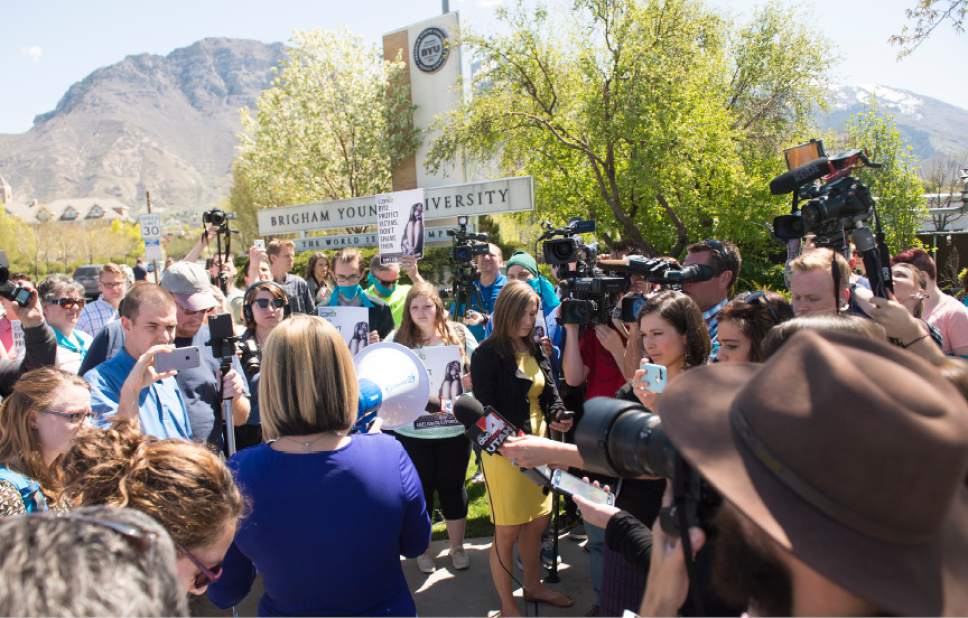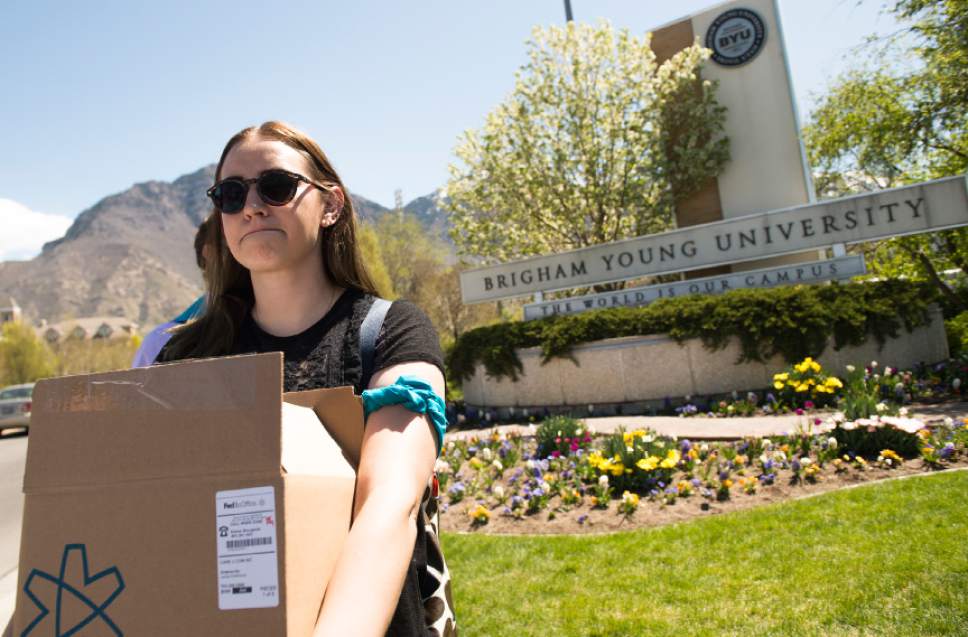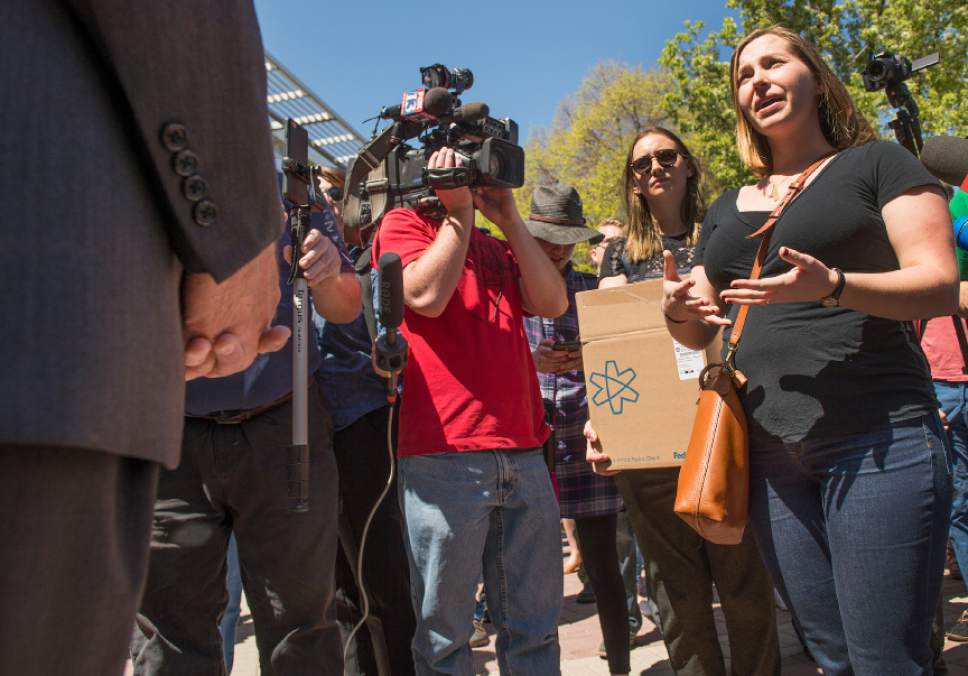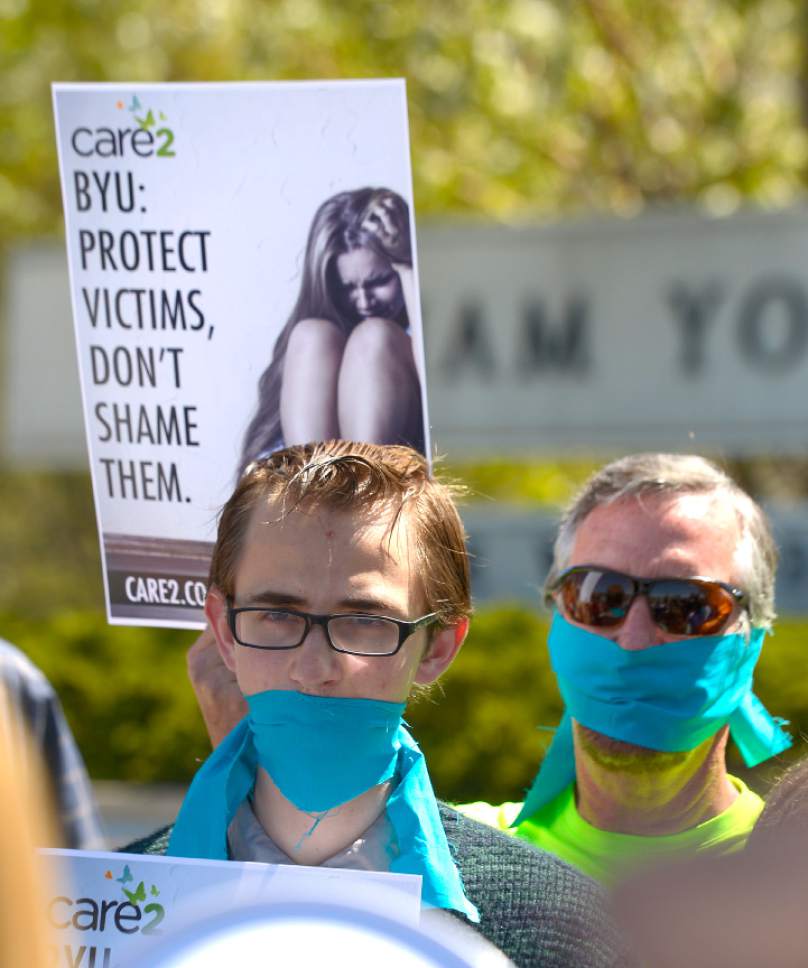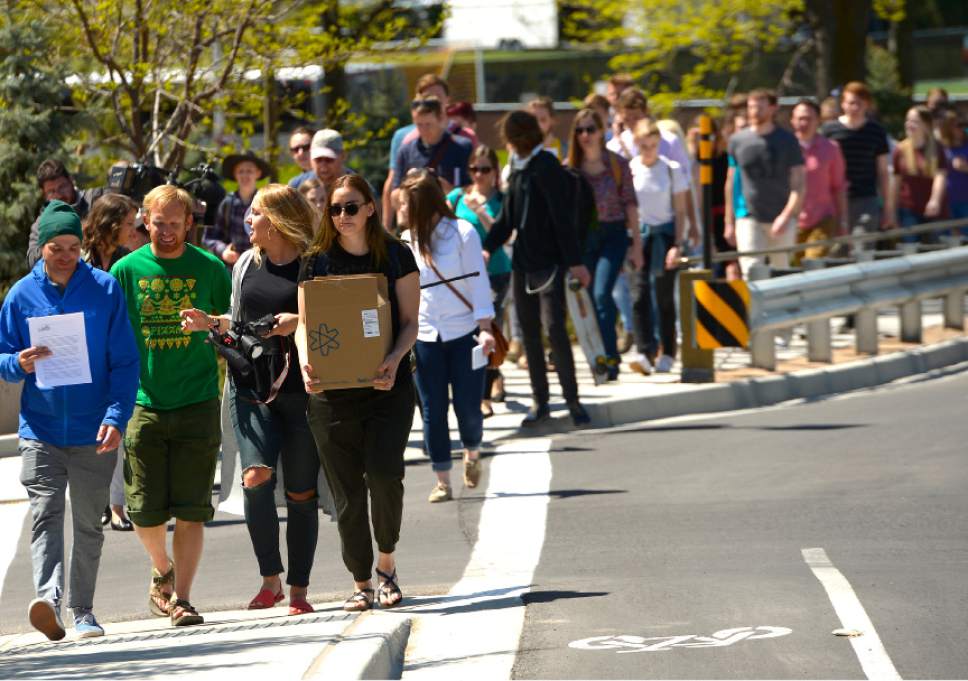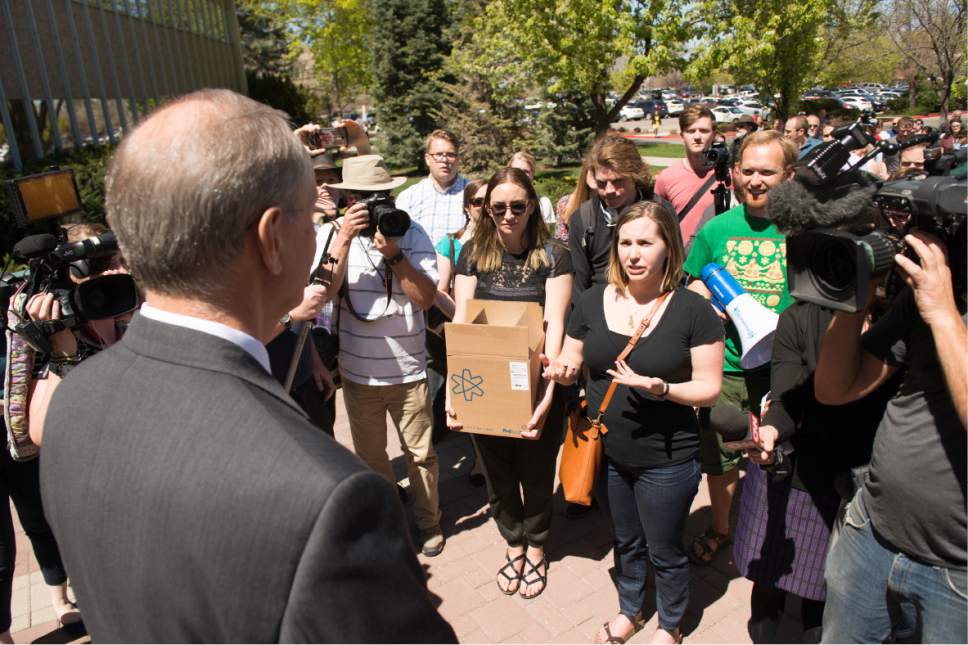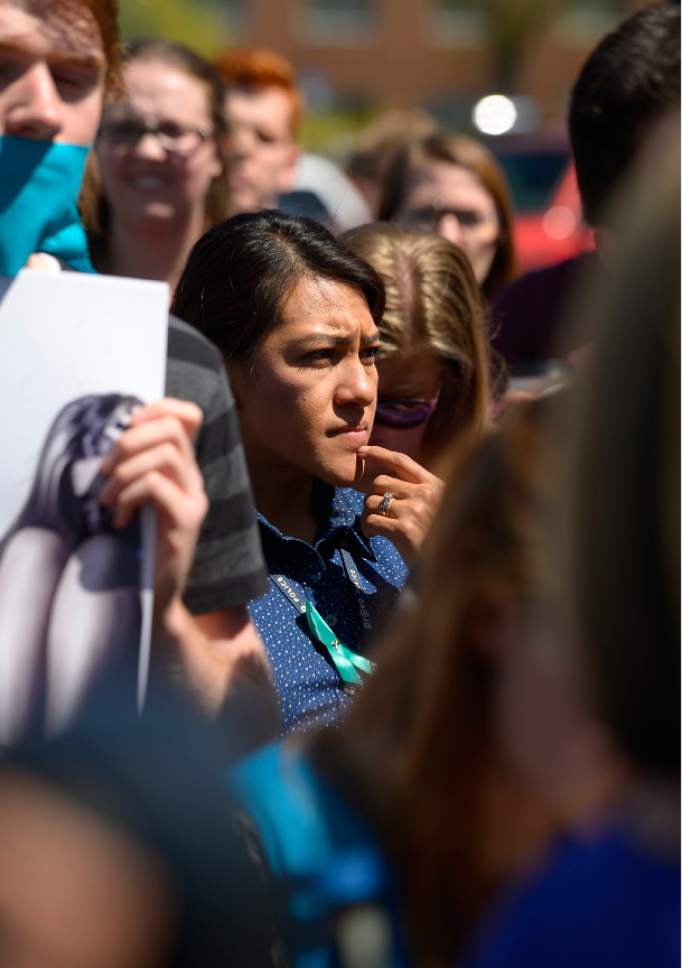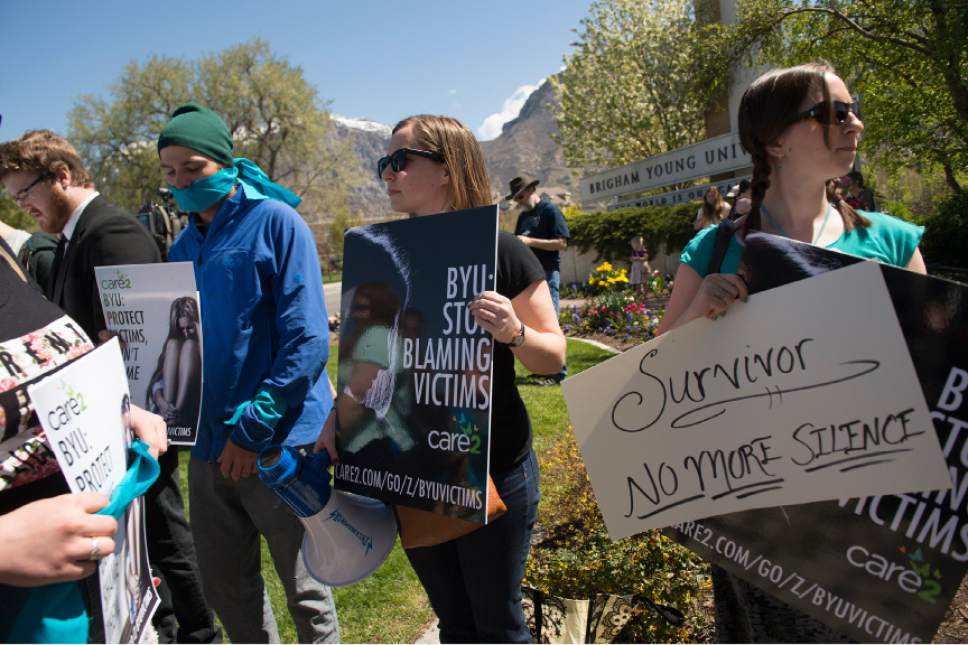This is an archived article that was published on sltrib.com in 2016, and information in the article may be outdated. It is provided only for personal research purposes and may not be reprinted.
Students at Brigham Young University reported fewer on-campus sexual assaults than many other major Western universities over the past decade — a finding that victims' advocates say could indicate a problem of under-reporting by people who are attacked.
The school reported an average of about 1.5 sexual assaults for every 10,000 students a year from 2004 through 2014, the most recent data available, according to an analysis of U.S. Department of Education data by The Associated Press.
Victims at BYU have complained about the Provo school's handling of sexual assaults.
The low numbers likely indicate that students aren't reporting all sexual assaults, not that the school has successfully curbed assaults, said Alana Kindness, executive director of the Utah Coalition Against Sexual Assault.
BYU reported four years with zero sexual assaults — in 2004, 2005, 2006 and 2011. In that same period, the University of Utah had no year without at least three reported sexual assaults.
The two schools are comparable in size — in 2014, the U. enrolled nearly 31,000 students, and BYU just under 30,000.
BYU's data is a major red flag when about 25 percent of female undergraduates nationwide have consistently reported each year that they were sexually assaulted, said Kristen Houser, spokeswoman for the National Sexual Violence Resource Center.
"It's unfathomable to me that there's any one-, two- or three-mile area in the country where there's zero sexual assaults happening, and particularly not among an age group that has the highest risk," Houser said.
The private school, owned by The Church of Jesus Christ of Latter-day Saints, has recently come under scrutiny for allowing its Honor Code office to investigate accusers, a policy that some say could further discourage reporting of sexual violence.
BYU has launched a review of the investigative practice. Spokesman Todd Hollingshead said the school strongly encourages students to report sexual assaults.
The culture in the predominantly Mormon state, where more than half of the 3 million residents belong to the religion that forbids premarital sexual activity and prohibits alcohol use, likely plays a factor in two different ways.
It could indicate that alcohol-fueled parties that could lead to rape are less frequent in the state, said Shima Baughman, a criminal law professor at the U. who has worked on rape cases.
It could also mean that victims are reticent to report sexual crimes out of fear of being judged or disciplined, Houser said.
Colleen Payne Dietz, 33, said she was raped when she was a freshman at BYU when she was 18. She said she didn't initially understand that it had been rape, so she didn't report it to the police.
"I had never been naked with a man before, no one had ever taken my clothes off," she said.
The Associated Press doesn't normally identify people who say they are victims of sex crimes, but Dietz said she wants her name to be used so she can share her story with other survivors.
The U. is not under the same scrutiny by victims' advocates as BYU, but a former student recently filed a federal complaint after she said the U. mishandled her sexual assault report. The school said it will continue to monitor its procedures for investigating sexual assaults.
Lori McDonald, the U.'s dean of students, said she knows from research and individual incidents that there have been more sexual assaults on campus than reported.
The reporting rates at the U. and BYU have increased in the three-year stretch covered by the recent federal study, mirroring the increase at other major Western universities.
McDonald attributes that increase to the university's work over the past few years to spread awareness among students.
"It's harder for us to intervene, it's harder for us to prevent if we're not getting a better sense of what's happening," she said.
AP writer Brady McCombs and Tribune editor Rachel Piper contributed to this report.


